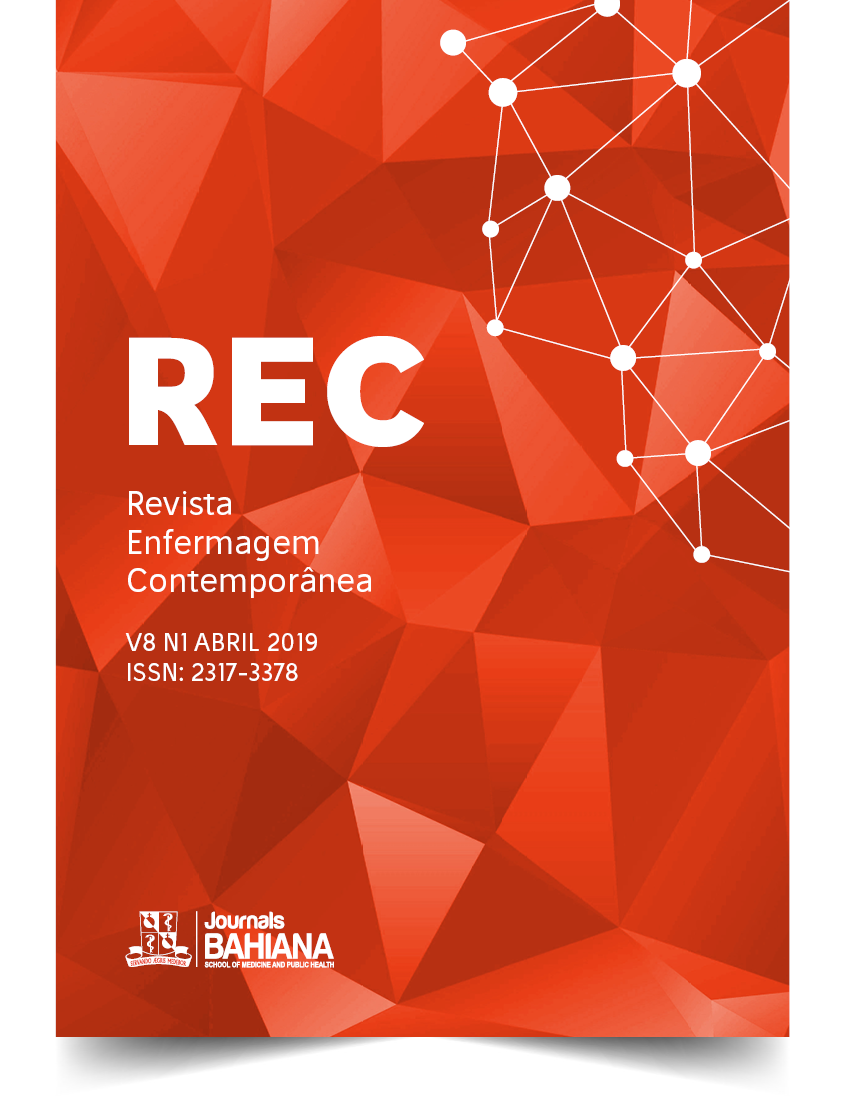Grupos de convivência como suporte na prevenção da depressão em idosos
DOI:
https://doi.org/10.17267/2317-3378rec.v8i1.1637Palavras-chave:
Idosos. Envelhecimento. Depressão. Socialização. Saúde mental.Resumo
OBJETIVO: Avaliar sinais de depressão em idosos participantes e não participantes de grupo de convivência. METODOLOGIA: Trata-se de um estudo do tipo exploratório, com abordagem quantitativa, que ocorreu em um município da Região Sudoeste da Bahia. Foram avaliados 18 idosos que frequentam grupos de convivência e 18 que não frequentam, totalizando 36 idosos. Os instrumentos utilizados foram Mini Exame do Estado Mental, Questionário socioeconômico e escala de Depressão de Beck. RESULTADOS: Dos 36 idosos avaliados, a maioria era do sexo feminino (88,9%), que vivem sozinhos e são viúvos, solteiros ou divorciados (83,3%) e de classe predominante E (77,8%). Verificou-se que 33,3% dos idosos que frequentam grupos de convivência apresentaram depressão, já os idosos que não frequentam totalizaram 50%. CONCLUSÃO: Os grupos mostraram-se relevantes, pois podem ser considerados preventivos, proporcionando aos idosos uma melhor interação social e enfrentamento do processo de envelhecimento.



